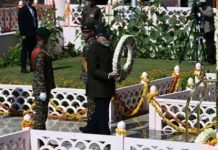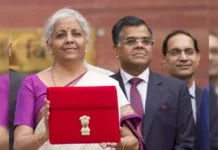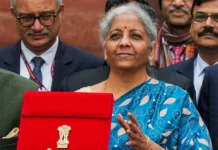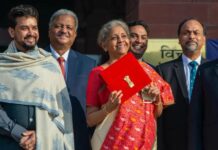
New Delhi on May 10
NEW DELHI: India has conveyed its concerns to the US pertaining to their immigration reforms currently under consideration and sought greater access for its highly-skilled non-immigrants.
Foreign Secretary Ranjan Mathai and US Deputy Secretary of State William Burns also discussed ways to take forward Indo-US nuclear cooperation with India reaffirming its commitment to pursuing nuclear cooperation with the US, official sources said here.
Burns’ visit is in preparation for the forthcoming Indo-US Strategic Dialogue scheduled to be held here in the latter half of June and during the discussions, both reviewed the full range of bilateral relations and agreed to focus further on the economic issues, the sources said.
“We raised matters relating to immigration reforms currently under consideration in the USA and sought greater access for highly skilled non-immigrant categories,” the sources said, adding the US raised issues relating to Preferential Market Access.
Indian Ambassador to the US Nirupama Rao has also already flagged India’s concerns over the comprehensive immigration reform bill carrying eight killer provisions which, if passed by the Congress, may prove to be detrimental to the interests of major Indian IT companies.
The first killer provision in the Comprehensive Immigration Reform Bill is the ban on client site placement for H-1B workers.
Under this, any H-1B dependent employer (a company with more than 15 per cent of its workforce on H-1Bs), would be flatly prohibited from placing H-1B workers at client sites or contracting for the services of those workers.
Secondly, the bill proposes new restrictions on client site placement for L-1 workers. The bill also places limit on total percentage of H-1B and L-1 Workers.
Under this, the immigration bill would impose a hard limit on the percentage of H-1B and L-1 workers that could make up a company’s workforce in the US.
Nearly half of US’ highly skilled non-immigrants are Indians who are about nine lakh in number.
Mathai and Burns, who also called on the Prime Minister and the National Security Advisor, also held a detailed discussion on energy-related issues including reiteration of Indian interest in LNG sales from the US.
There was a discussion on regional issues including the situation in Afghanistan, sources said.
The official sources also said Burn’s visit here comes as part of the ongoing process of high-level engagement between US and India.
“Energy Secretary, Steven Chu, was here last month, Finance Minister had visited Washington in April. The Human Resources Development Minister is to travel to US shortly for the Education Dialogue and Home Minister will visit Washington for the Homeland Security Dialogue,” they said.
Ways to enhance cooperation in the field of education, seen as a future pillar of Indo-US relations, was also discussed, they said.
In his meeting with Prime Minister Manmohan Singh, Burns recalled the distance Indo-US relations had traversed since early 2000 and attributed the success to the visionary leadership of Singh, they added. -PTI






